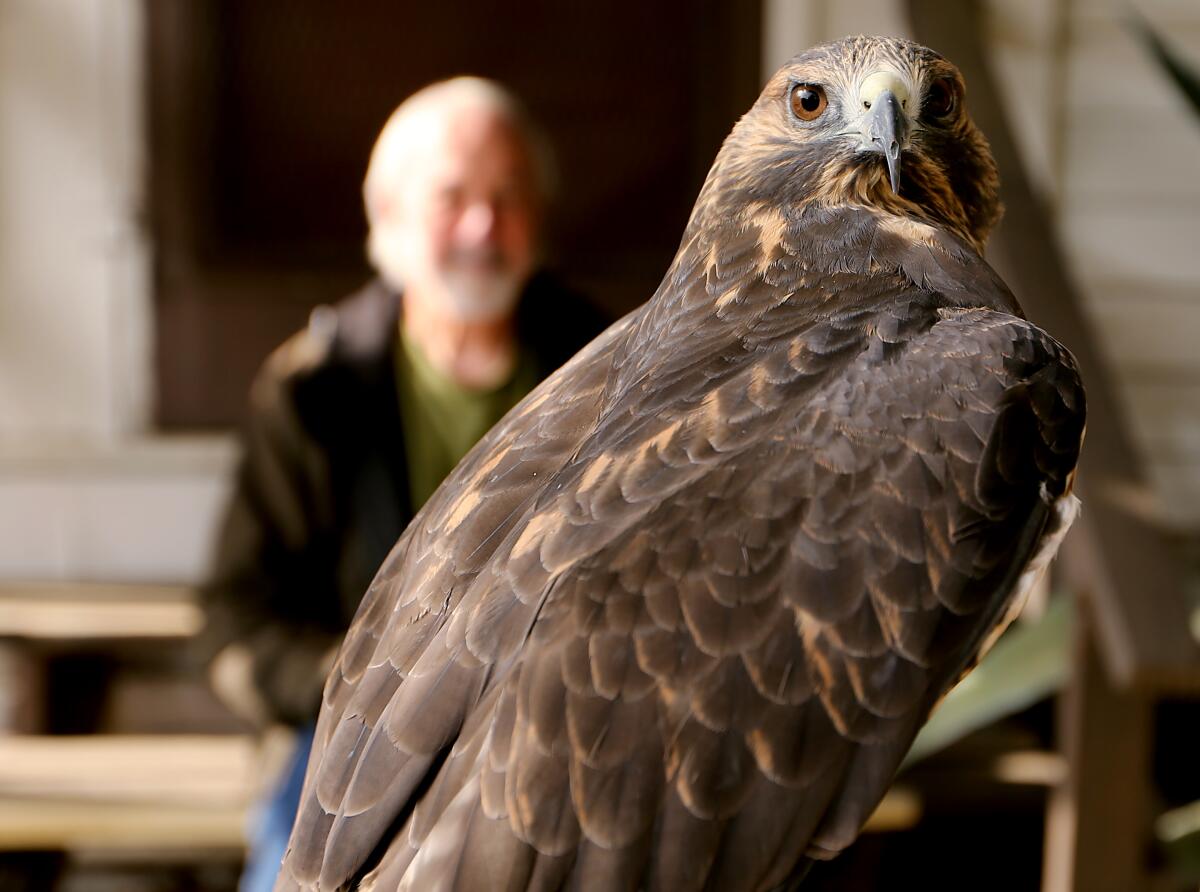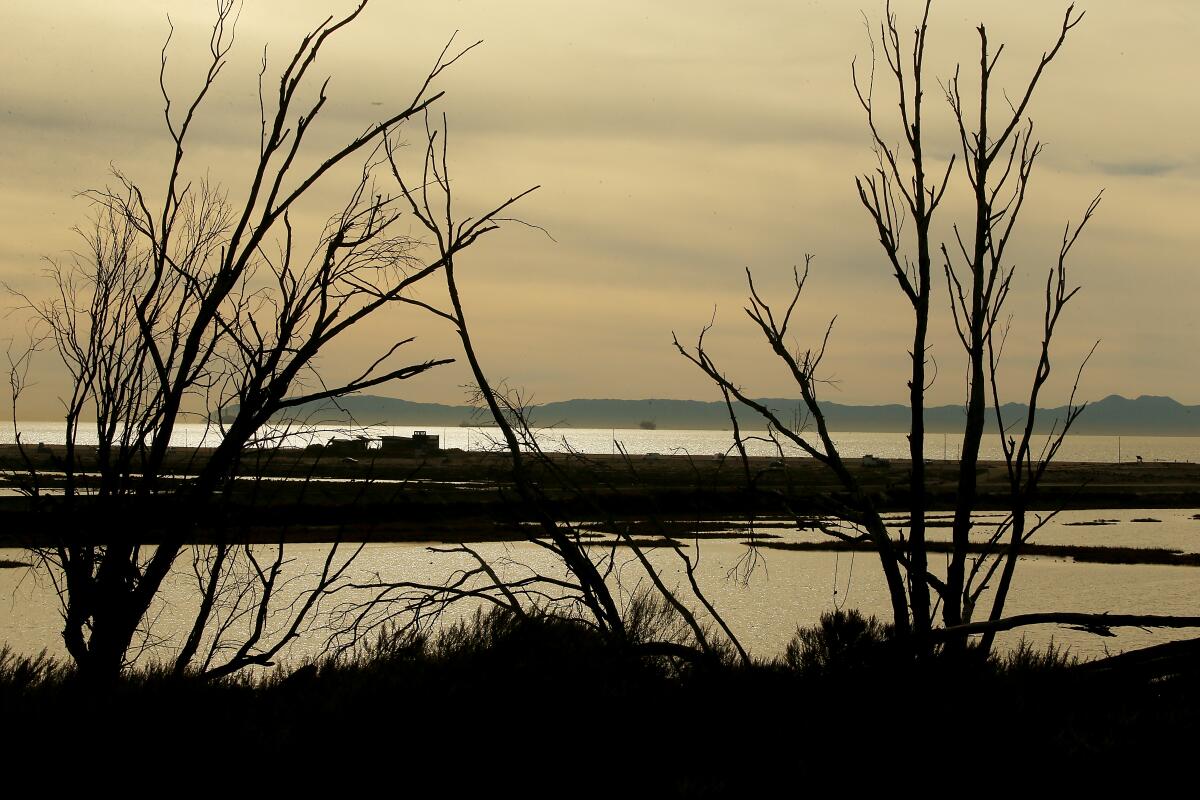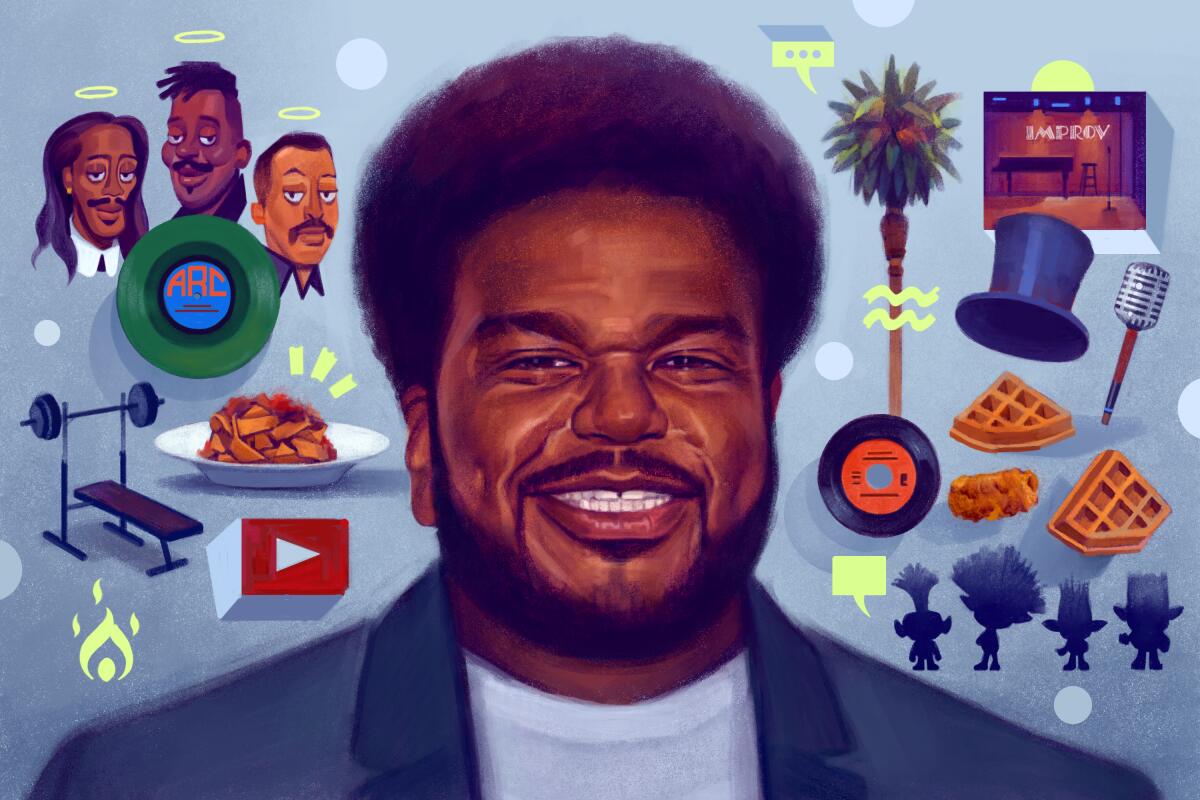How can we improve campaign coverage? Help us set the citizens agenda for 2024

- Share via
Good morning. It’s Monday, Dec. 11. Here’s what you need to know to start your day.
- Help us set the citizens agenda for 2024
- SoCal’s wildlife rehabilitators say they’re under threat
- Italian cookies like nonna used to make
- And here’s today’s e-newspaper
Sign up for Essential California
The most important California stories and recommendations in your inbox every morning.
You may occasionally receive promotional content from the Los Angeles Times.
Help us set the citizens agenda for 2024
We’re roughly 47 weeks away from the 2024 election and, if you’re at all like me, you’re already feeling exhausted and overwhelmed.
A September survey from Pew Research Center found that 65% of Americans say they “always or often feel exhausted when thinking about politics.” More than half of U.S. adults said they feel angry when thinking about politics. The flip side is dismal, with just 10% saying they “always or often feel hopeful about politics.” Only 4% of U.S. adults said politics made them feel excited.
Elections don’t always bring out the best in our country, media coverage included. But staying informed as you decide whom to vote for is important in maintaining our democracy. So what’s a journalist to do?
Jay Rosen, a journalism professor at New York University who describes himself as a “journalism reformer,” has long been critical of the campaign coverage “pit” that news media regularly falls into. The focus on campaigns as horse races, he explained, centered on polling and the plodding track to victory or defeat “leaves a lot to be desired.”
“[It] appeals to people in the political class, to peers and to people you write about in national politics, [and] has also been very influential at the state and local level,” Rosen told me last week. “It’s one of the reasons that people don’t see as much value in the news as they once did.”
Here are a few things Rosen told me he’d like news media to get better at this time around, along with what he’s optimistic and pessimistic about as we head into peak campaign season.
Refocusing on voters
Rosen advocates for more newsrooms to shift their coverage to promote a “citizens agenda.”
The heart of that approach is turning the attention from the political class to the electorate by asking voters:
What do you want the candidates to be talking about as they compete for votes?
Rosen notes that what voters want to hear about may not be the same issues that candidates recite on social media, in interviews or on the debate stage. And they might not be issues in the traditional sense, which “the political system has already fashioned into a controversy,” he said.
The hope is that if news media can provide voters with meaningful coverage of what they care about, and hold candidates accountable for addressing what voters want to hear about, people will be more informed and more likely to participate in the democratic process.
“It’s not a magic solution to anything but it is a good place to start,” Rosen said.
The participation problem
A lack of faith or understanding in how government works can hinder people from participating in it. There’s a reason local elections have such abysmal turnout. That’s evident in this breakdown of California’s 2022 general election turnout, where slightly more than 40% of residents eligible to vote actually did.
Part of that could be because local government often feels opaque and convoluted, Rosen said, adding that news organizations sometimes fall short of helping the public decode what’s happening in city halls and statehouses.
“We don’t just need good information,” he said. “We need good opportunities to participate.”
Here I will note that, if you live in Los Angeles County, The Times has a great civic engagement tool called Shape Your L.A. You can plug in your address to learn more about your local, county, state and federal representatives and explore ways to get involved or contact your elected leaders.
‘The stakes are much higher now’
In that Pew survey, one of the most common words U.S. adults used to describe the current state of politics was divisive.
“The stakes are much higher now,” Rosen said, arguing that one key rift concerns journalism itself, as former President Trump successfully turned the news media into a “hate object” for his supporters to revile.
“We have a large number of voters … who reject news of the mainstream media on principle, and are really not reachable by even the most excellent reporting,” Rosen said. “That’s a really difficult problem and I’m pessimistic about solving that in time for the 2024 election.”
Rosen said he finds hope in journalists who want to focus on the democratic process. That also includes working with the perception — expressed on both sides of the aisle — that democracy itself is under threat across the U.S. (though who’s to blame has itself become divided along partisan lines.)
“There’s a general sense that this election is different, and that we have to include the future of democracy as an issue in 2024,” Rosen said. “To use a healthy cliche, that’s on the ballot too.”
Let the great experiment begin!
We want to test drive the citizens agenda model. And who better to help us understand state and national voters’ priorities than you: our legions of passionate Essential California readers?
So, take our survey and tell us:
What do you want the candidates to be talking about as they compete for your vote?
Of course, the presidential race gets the most attention, but the elected leaders most likely to affect your daily life are at the city, county and state level. What would you like to see those candidates prioritize in 2024?
And we want to hear from you on participation. Are you satisfied with your level of participation in the political system? If not, what barriers do you believe are getting in the way of your or fellow citizens’ ability to make their voices heard?
We hope you’ll take a few minutes to answer these questions — and share the survey with others so we can hear from as many people as possible. Our goal is to explore your answers in detail, see what common themes and patterns emerge and use that to help guide how we approach election reporting in this newsletter in the months to come before Nov. 5, 2024.
Today’s top stories

Environment
- Southern California’s wildlife rehabilitators say they are in a fight for survival as state officials conduct a review of regulations concerning the possession of wild animals.
- Despite heavy opposition, Gov. Gavin Newsom is pushing forward with a plan to build a 45-mile water tunnel beneath the Sacramento-San Joaquin River Delta — a project the governor says is vital to modernizing the state’s water system.
- Blizzards, tornadoes and a hurricane: We lived through SoCal’s year of weird weather.
Dodgers
- In a blockbuster announcement Saturday, Shohei Ohtani agreed to a 10-year, $700-million contract with the Dodgers — bringing the two-time most valuable player across town after his historic six-year stint with the Angels.
- Ohtani’s commitment isn’t the only win for the Dodgers. The “unprecedented” contract, with its unique structure, will also help the team build their roster.
- Bill Plaschke: Can you believe it? Shohei Ohtani, baseball’s new Babe Ruth, is a Dodger.
- A $900 ticket for Shohei Ohtani’s Dodgers debut? Seat not included.
Housing and development
- A year into her tenure, L.A. Mayor Karen Bass has made progress on homelessness but a steep climb remains ahead as hotel residents wait for permanent housing.
- A new mixed-use development dubbed District NoHo is coming to North Hollywood’s Metro station, promising 1,481 residential units as well as office, retail and restaurant space.
- Dozens of digital billboards are poised to go up above Los Angeles freeways and boulevards, marking the largest expansion in the city in nearly two decades.
More big stories
- After a year in office, L.A. County Sheriff Robert Luna talks deputy gangs, jail deaths and overdoses.
- Four Southern California Hilton hotels have reached deals with striking workers, suggesting new momentum.
- Gusty winds sparked brush fires in Ventura and Riverside counties over the weekend, though Ventura County firefighters made enough progress Sunday to lift evacuation orders.
- 31 pharmacies in Mexico are shut as authorities crack down on fentanyl-tainted pills.
Get unlimited access to the Los Angeles Times. Subscribe here.
Commentary and opinions
- Erika D. Smith: Is L.A. actually solving homelessness? The answer will start with perception, not reality.
- Doyle McManus: Trump’s campaign in 2016 was a populist revolt. In 2024, it’s a quest for retribution.
- Robin Abcarian: Read Liz Cheney’s book and weep. America’s democracy hangs on the details.
- LZ Granderson: What’s with all these rules about hair? Let young men enjoy it before they go bald.
- Opinion: We can learn from the “era of cognitive challenges,” when politicians and celebrities suffer from brain disorders.
- Opinion: At my school, the closing of the teenage mind is almost complete. It’s hurting us all.
- Opinion: Same hospital, same injury, same child, same day: Why did one ER visit cost thousands more?
- Opinion: Why did Israel miss so many warnings of the Hamas attack? Here’s one answer.
Today’s great reads
Their stolen land in Orange County was given back. Now they’re ready to heal. With the recent transfer of 6.2 acres to the two tribes for conservation and cultural use, Indigenous Californians have land in Orange County that is back in their hands, a dedicated space where they can practice traditions that were in place millenniums before the construction of Stonehenge, the pyramids of Egypt or the temples of Greece.
- More than a decade later, Fukushima nuclear disaster clouds Japan’s clean-energy ambitions.
How can we make this newsletter more useful? Send comments to essentialcalifornia@latimes.com.
For your downtime
Going out
- 🚲 Bike rides, vegan brunch, concerts and maybe a little YouTube — that’s Craig Robinson’s ideal Sunday in L.A.
- 🍴 Try these 13 food halls for getting lost in L.A.’s diverse cuisines.
- ☕️ Grab coffee at one of 19 cafes that our critics says make L.A. a world-class coffee destination.
Staying in
- 🎬 Get caught up on this year’s top movies. Here’s our 2023 best-of list and where to find them.
- 🍪 Italian cookies are a festive way to please a crowd. Here’s how generations of nonnas do it.
- ✏️ Get our free daily crossword puzzle, sudoku, word search and arcade games.
And finally ... a great photo
Show us your favorite place in California! Send us photos you have taken of spots in California that are special — natural or human-made — and tell us why they’re important to you.

Today’s great photo is from The Times’ Jason Armond. Almost every day for the last two years, Vincent “VDogg” Hubbard has stood outside the Louisiana Fried Chicken at Manchester and Normandie avenues with a suitcase full of cocoa butter and a traveling chess set. He learned to play in prison and now hopes to turn his hobby into something more.
Have a great day, from the Essential California team
Ryan Fonseca, reporter
Laura Blasey, assistant editor
Check our top stories, topics and the latest articles on latimes.com.
Sign up for Essential California
The most important California stories and recommendations in your inbox every morning.
You may occasionally receive promotional content from the Los Angeles Times.









